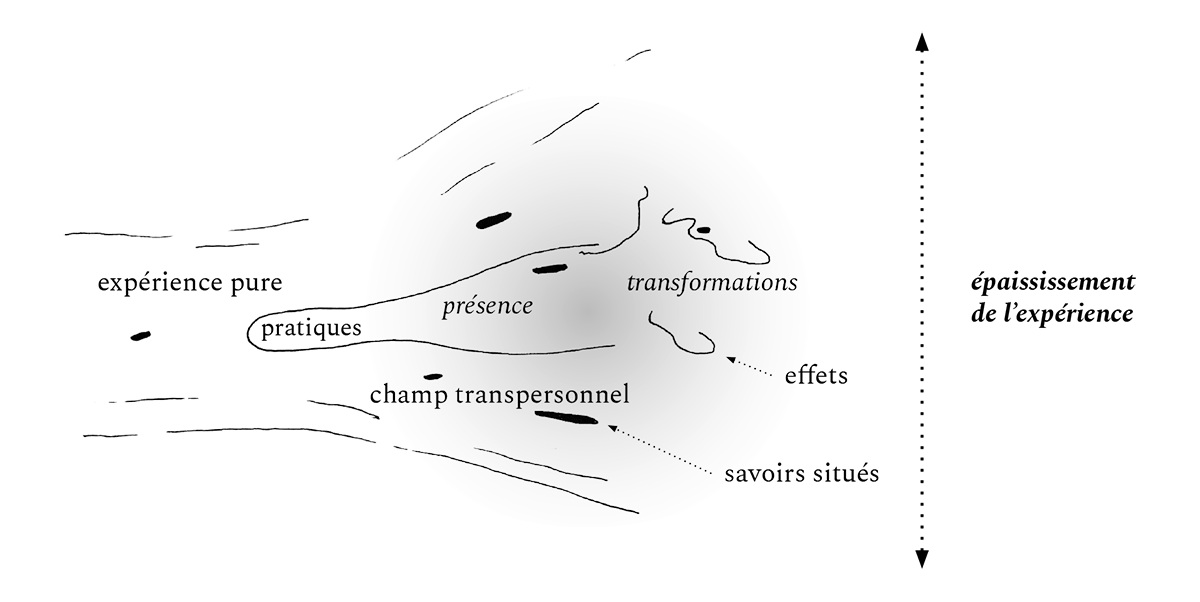Thickening the experience to let ourselves be transformed
How can we cope with the accelerating pace of systemic change and the uncertainties and ambiguities of a complex and volatile reality? How can we enable organisations and individuals to overcome the stresses and disorientations to which they are subjected?
How can we maintain redundancy and diversity, nurture solidarity, cooperation and divergence to restore commonality and harmony in organisations?
The Institute supports the emergence of the skills required to engage in these transformative changes. The principle of the approach is to start by sharing original experiences to learn how to allow ourselves to be collectively transformed by new perceptions and by the new questions they raise.
Our interventions open up ways of tackling problems differently. They help people find the resources and skills they need to deal with reality differently. This adaptive flexibility means daring to go beyond obsolete beliefs by listening to sensitive experience and collective intelligence. It allows us to experiment with a new posture that can become a source of profound transformation, leading to a paradigm shift.
"Socrates, the ironic, teaches nothing because he is ignorant: he does not make people more knowledgeable, but he does make them Other."
"Our central idea is the construction of situations, i.e. the concrete construction of momentary moods in life, and their transformation into a higher passionate quality."
Our holistic approaches are based on processes of integration. They allow us to experience ways of being that are different from those to which we are accustomed or to which we believe we should conform. They don't just invite us to try out new experiences; above all, they deepen our awareness of the latent dimensions that emerge from our experiences. They open us up to the joy and curiosity of unexpected sensations. They help us to gain a finer understanding of what is at stake in possible transformations. Individually and collectively, they enable us to tame change through experimentation that reveals alternatives.
"It is not by chance that a person is called a "nose" (...). He or she has learned to have a nose that enables him or her to inhabit a (richly differentiated) odoriferous world. (...) The acquisition of a body is a progressive undertaking that produces both a sensory support and a sensitive world. (...) [The person] has learned to be affected."
Every organisation preserves its homeostasis, which is why it 'immunises' itself against changes that threaten its identity. To explore other ways of being, it is therefore necessary to create appropriate conditions that respect this principle. The practices and arts of transformation unfold in a context that allows defensive reflexes to be suspended in order to explore the effects of an unfamiliar sensitivity, experience new connections, reveal unsuspected capacities and open up to other futures. The collective understanding acquired in this way produces coherent effects that give organisations lasting robustness.
"Without autoimmunity, with absolute immunity, nothing would happen. We would no longer wait, we would no longer expect, we would no longer expect each other, or any event."
"The future is not out there in front of us, but inside us."
Experience connects things in new ways. Thickening experience is an act that creates relationships and analogical resonances on an 'unknown scale' between fields that were previously separate.
The practices of the Institute create the conditions for this thickening of experience. They are intrinsically exploratory, providing an astonishing way of experiencing and traversing the texture of reality, linking the intellectual and the sensitive.
"Action is not a burden that we have to lift and drag around on our shoulders. It's something we are. The work we have to do can be seen as a kind of return to life. Rather than a moral imperative, it's an awakening to our true nature, a release of our gifts."



